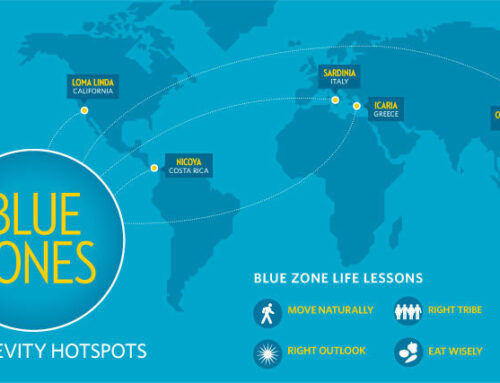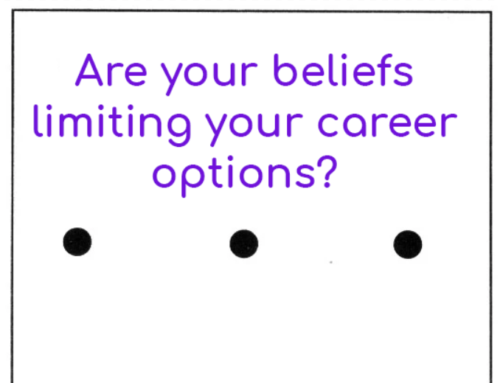This is the single biggest request I hear in my work as a Career Coach.
If you similarly feel stuck in a role that you know isn’t right, but you don’t know what your passion is, let me help you address this worry and assure you that there is a career (in fact probably more than one!) out there that will make you feel excited to go to work.
If you’re like most people, you probably don’t have a clear outright ‘passion’, because if you did, you would have already followed it, or at least researched it and made a decision whether to pursue it as a career.
In fact, I believe passion isn’t a starting point, it’s a side effect. It’s something that happens slowly, while you immerse yourself in something that starts with a small interest, or an alignment with one of your key strengths, and then develops over time.
Time is important, as developing a passion requires dedication and hard work. Not every day is going to be smooth or even fun. I don’t believe you can develop a passion without accepting this reality.
With that said, what can you do if you want to have a meaningful and interesting role? A few things it turns out, and this process can be quite creative and fun.
1. Relax and have fun
The first step is to take a deep breath and accept that you’re going on a journey of self-discovery.
In my experience, there are several, very different careers out there that could make you happy. They’ll all share common aspects, but might be in very different industries or sectors.. Knowing this should take some of the pressure off having to ‘find the one’.
You’re a complex person with many different interests that change over time, so accept this. There will be many different avenues that lead to your goal of working in a meaningful role.
2. Get creative
Set some time aside to reflect on these 11 questions. You’ll find some of them easier than others, and a few you might not know how to answer at all – that’s okay. They will get your thoughts flowing and should reveal 2-3 small clues as to what you could pursue.
- What 3-4 activities or responsibilities from your daily life make you happy / give you energy?
- What do people ask your help with?
- What would your friends say you’re good at?
- If you won 10 million pounds, what would you do with your time?
- What would you most like to develop and improve in yourself?
- Do you have a philosophy of life – what is it?
- What were you interested in as a child? Do you still engage with it in perhaps a different way?
- Which person do you admire, and why?
- What would you like to contribute to the world?
- What advice would you give to someone just setting out in life about living the best life they can?
- What beliefs do you need to let go of in order to be even more successful?
Make it a point to discuss your answers with a couple of friends and family members, and let them inspire you further.
3. Put the clues into context
Did any clue about an interest or fascination about a topic or sector come up? Even if it’s a small clue, like ‘I like helping people’, or ‘I like to work outdoors’.
Take that clue and apply the Japanese idea of ‘ikigai’. (For more on this, read my article 3 powerful ways to develop ikigai in your career).
To sum up, the 4 questions you now have to ask yourself are:
- What do you love doing?
- What are you good at?
- What can you get paid for?
- What does the world need?
Let me expand those questions:
- What do you really like doing, and when do you experience a state of flow, as in ‘time just flying by’?
- What are your strengths? I can highly recommend the practical book Strengths Finder 2.0 to get clear about what you naturally excel at.
- What are the job opportunities like at the moment, would they pay you enough and are they located conveniently to where you live?
- What do you feel is an emerging field, or a gap in the market that could make people’s lives better?
Here are two bonus questions:
- Who do you love spending time with?
- What physical environments light you up and bring you alive?
4. Have conversations with people doing the role
From reflecting on these questions for a few days, you should have one or two ideas about a possible new career direction. Now it’s time to get stuck in and have actual conversations with people working in that career. Pick the most interesting sounding direction first.
At this stage it’s important that you’re not obsessing about having found your perfect career already. Don’t have a narrow field of vision – a small clue can turn into another clue, or a dead end, by having conversations with people doing it. It’s not likely to happen however if you just keep going around in circles in your head.
Clarity comes from engagement, not thought.
If you’re not sure how to approach people working in a field you’re interested in, read my article How to use networking to discover a meaningful career.

5. Still stuck?
It might be that you have followed my instructions up until this point, but you’re struggling finding a new career direction that ticks all the boxes. Don’t worry, I’ve found it often helps if you try to shift your perspective from a possible career, to a skill.
From the pioneering work by Positive Psychologists like Dr. Martin Seligman, there’s increasing evidence to suggest that when we focus on becoming better at a specific skill, interest and passion often follow.
So instead of thinking what job you might love – think about what skills you’d love to be great at.
From identifying your top strengths earlier, which of these would you love to be even better at?
Furthermore, there’s growing evidence that when you also consider what skill or activity would make a positive contribution to others, you’re more likely to hit upon a career that would make you happy and fulfilled in the long run.
So which of your skills could you use to make the lives of others’ better?
These are big questions, and you should reflect on them for several days or maybe even weeks, while you’re simultaneously pursuing conversations with people.
6. Rinse and repeat
When you’re having those conversations, you’ll probably hit on a dead end at some point. What sounded like an interesting career opportunity suddenly leaves you feeling uninspired. That’s to be expected, so try to view it as a positive as it means you can tick the idea off your list, and free it from clogging up your mind.
Now it’s time to go back to the questions and find another clue to follow. As before, reach out to several people who work in a similar role, and ask them about what it’s like.
Conclusion
Finding a new career direction to be passionate about is possible even if you have no clue what your passion is. Part of the trick is to accept that passion is not something we just have or discover and then pursue, it’s about finding our what strengths you enjoy using, what skills you’d like to improve and, for most people, how you can make a positive contribution in some way.
Getting out of your head and actually talking to people who do the job is important, as that’s how you achieve true clarity. Then, very importantly, you have to listen to your gut feeling.
So follow the steps, break down the problem, and pivot when you hit a dead end.
If you feel you’d like the help of a Coach to guide you through this process, feel free to get in touch.
To your success and happiness,







Leave A Comment